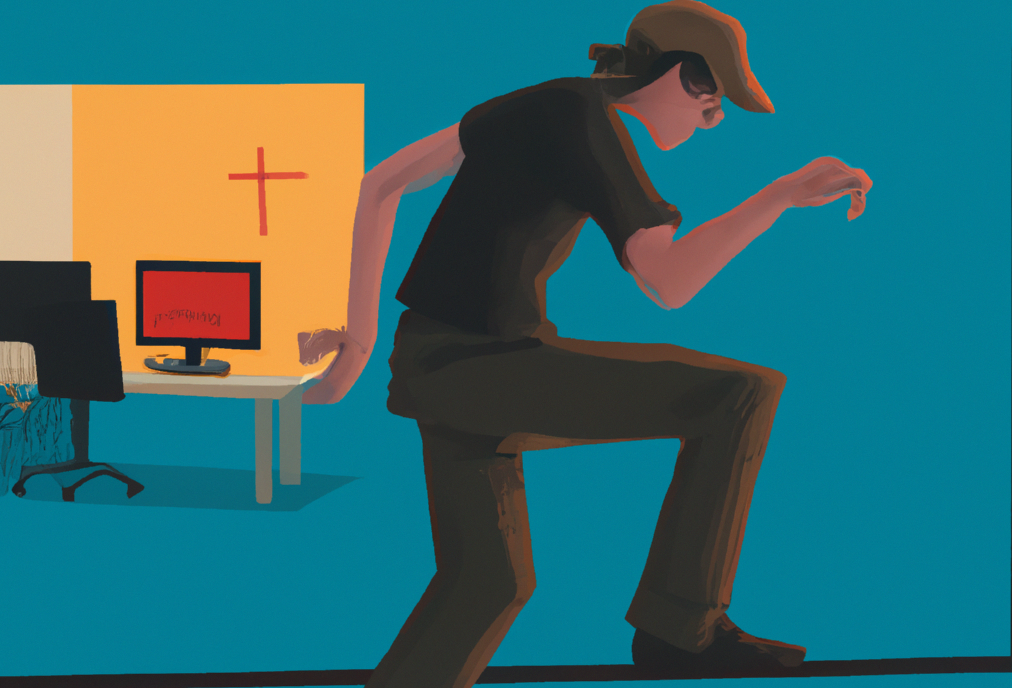The Secrets to Keeping Your Programming Career Balanced
Programming is a rewarding job, and I consider myself lucky to have a programming job. I was installing windows and doors outside in the elements and building websites on the side when the company I worked for found out and moved me indoors to build their own website.
I had turned a hobby into a job. And it was great. I got paid better. I didn’t have to be out in the weather carrying windows up a ladder. But I also became a lot more sedentary, and when I got home, I had lost my hobby.
Give Yourself the Motivation to Learn New Technologies
One thing I figured out was that if I wrote PHP code at work, I didn’t really want to come home from work and write more PHP code. So I started learning Python. It was just different enough to hold my interest even after I had worked all day.
But I figured I would need more motivation that just having another language under my belt to keep with it. So I built a url shortner for tracking affiliate links in Python, because affiliate marketing was something I did on the side. The primary motivation here was building a tool I could use.
To learn machine learning, I entered a stock trading contest while I was an Angular developer during the day. The motivation here was to win, and I placed high enough to win cash three times.
Most recently, I learned Golang working on open-source blockchain projects. The motivation for that was bounties paid in cryptocurrency and working on a few high-profile open-source blockchain projects.
Choose a technology that you don’t use at work. Figure out something you can create with it, find a coding contest that uses it, or find a bounty that will pay you to write it. It worked for me and I have now landed jobs using all the technologies I have used in my side projects.
Read Non-Coding Books
I hate to say it, but I rarely read coding books any more. I read coding articles and I skim coding books. I have even written coding book reviews and two coding books myself, but there is a limit.
I am already learning through building side projects. I skim books on the topic so I know where things are when I run into a snag and need to look up how to do something. And I use Google a lot.
But I do read books daily on non-coding topics. Sometimes I read biographies, sometimes science, sometimes history, and sometimes science fiction. The point is that not everything has to be about code, and it is good to wrap your mind around other things.
Do Some Non-Coding Things
I not only read non-coding books but also do non-coding things. It helps to have variety to avoid burnout and to use other parts of your mind. You can sharpen your skills and relax at the same time.
I kind of took one of my past jobs and turned it into a hobby. No, I don’t install windows and doors randomly in people’s houses, but I build furniture and built-ins for the Craftsmen Bungalow house I own. Creating virtual things is fun, but I also like working with my hands.
I also write articles like this one.
Some coders like to play music. Some are gamers. Find one of the other things that you are and be the best amateur you can.
Get Physical
It took me a while to realize that I was becoming sedentary after I did. But after a few years, I would get a kink in my back a few times a year and it would make it hard to move for a week until everything went back to normal.
Then it started happening more frequently and lasting longer. It freaked me out. I had been in good shape most of my life. I couldn’t have much of a work/life balance if I couldn’t move.
So I started working out. Not much more than calisthenics every day. But my back has not gone out for a few years now, I am in a better mood most of the time, and I am much more willing to do than to sit. We are animals and our bodies were designed to move, not be stationary.
Be Social
When I first got started in coding, I thought if I could lock myself in a room for long enough, I could come out with a product that would end my day job. At the time, I worked in retail and dealt with customers all day. I had enough of people by the end of the day.
It wasn’t until the COVID-19 pandemic that I realized that this was so wrong. I might have just had a threshold where dealing with irate customers for eight hours a day is too much and going into work every day at an office job is just right.
Spend time with your family. Go to meetups. Maybe teach coding at a bootcamp. Don’t lose touch with people, because then you will have really lost your balance.
You Define What Balance Is
Being a developer is a great job to have. But don’t let it give you tunnel vision. There are other things to life than what you do at your day job. Use part of your off-time to build a tool you will use in a technology you don’t know yet. Read and do things that have nothing to do with code once in a while. Make sure you do something physical to keep your mind and body in balance. And don’t forget that none of this is worth it without people in your life. Other than that, you will have to find what balance means to you.




